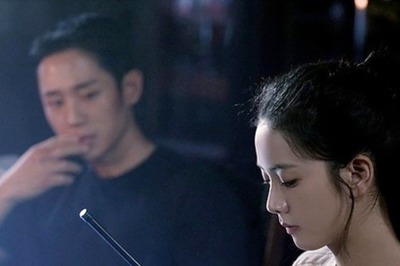
views
KOCHI: When Rahul Riji Nair, a young business analyst decided to pursue his passion for film-making, little did he know that he was going to take up a huge cause as his debut venture. His first documentary film ‘The Human Boundaries - Born as a Human, Divided by Boundaries’ created ripples wherever it was screened. The 35-minute documentary forayed into the trials and tribulations of new age Hindu refugees who continue to come to India from Pakistan. The film will be screened at The Woods Manor on April 28 in Kochi.“I knew it was a burning topic which needed to be retold. However, I had never known the gravity of the situation until I visited the camp where they were sheltered,” he says.Talking about his documentary, Rahul says that about 151 Pakistani Hindus with a the tourist visa valid for a month entered India in September 2011. Most of them were women and children. According to them, religious persecutions are rampant in Pakistan because of which they decided to stay back in India even after the expiry of their visas. However, following the rules, Indian Government insisted on deporting them. Their’s is a story of lives belonging to no country which needs to be highlighted,” he says. Rahul adds that he happened to read an article about Sri Sri Ravi Sankar visiting this camp called ‘Baba Dehradunni’ in Delhi. “It gave me the first cue and we paid a flying visit as we were told by the insiders that if we wanted to shoot then we should reach there as early as possible, fearing yet another police action. Nonetheless, our shoot inside the camp proved to be a herculean task,” he said. Also, out of Rahul’s team of three, only two got the permission to shoot. “We were allowed the least number of equipment for a span of three days due to which we had to shoot with a handy-cam,” Rahul said.According to Rahul, the shoot was strenuous as they had to work with emotionally exhausted people. “They were reluctant to speak as they were not sure if they should consider us friends or enemies. Arjun Das, one of the refugees said that they are called ‘Kafirs’ in Pakistan. In Pakistan, they are not allowed to mingle with others. Kidnappings, especially that of girls for forcible conversions are a recurring phenomena. Besides, contrary to their religious rites, the dead were buried and not cremated. He also said that the fundamentalists in Pakistan are creating the trouble as others are generally aloof,” Rahul says.He says that the documentary has been screened in various parts of the country and to their surprise, many organisations have come forward in lending a helping hand. “As of now, the Delhi High Court has stayed their deportation until a clear consensus is reached,” Rahul said. The documentary was screened at the International Human Rights Conference in New Delhi and in reputed film clubs across the country. The film has also bagged a distribution contract from a US Company called Commodity Films for worldwide distribution through online and offline media.




















Comments
0 comment